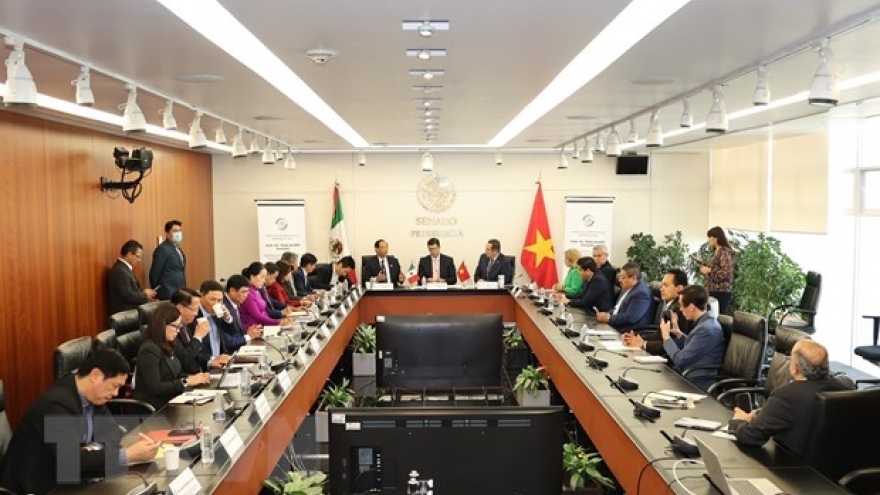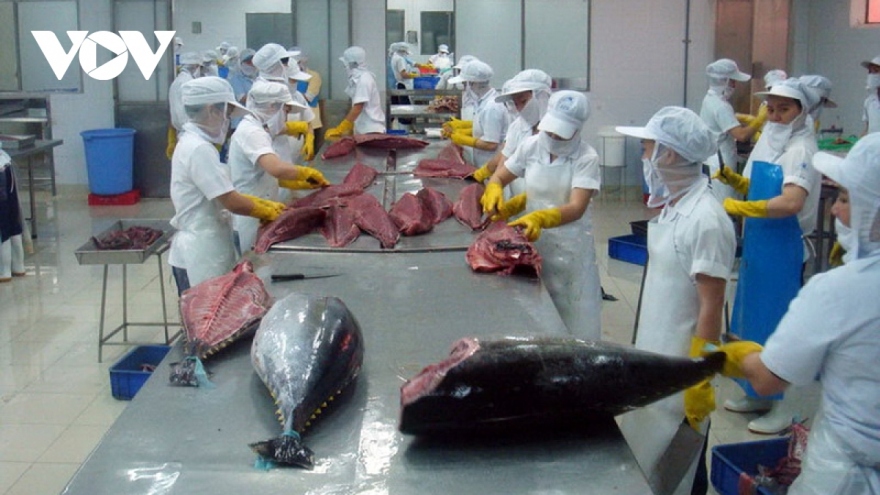Vietnam emerges as new destination for Mexican businesses
VOV.VN - Vietnam is emerging as a potential trade partner for Mexico as the Latin American state is increasing import tariffs on countries without a free trade agreement (FTA).

Vietnam News Agency correspondents in Mexico quoted Vietnam’s Trade Counselor in Mexico Luu Van Khang, saying many of Mexico’s leading importers and distributors have turned to Vietnam in 2024 to source goods, particularly clothing, footwear, plastics, and wooden products that are Vietnam’s key export items.
According to the trade counsellor, both Vietnam and Mexico are members of the Comprehensive and Progressive Agreement for Trans-Pacific Partnership (CPTPP), which provides preferential import-export tariffs.
Vietnamese businesses should leverage the advantages of this new-generation FTA to penetrate Mexico’s market of approximately 130 million consumers, he said.
Notably, he stated that Mexico has committed to eliminating 77% of tariff lines, equivalent to 36.5% of import turnover from Vietnam, and increasing the rate to 98% by 2028. Thanks to the commitment, Vietnam’s export items such as seafood, coffee, rubber, phones, and auto parts have seen impressive growth. Conversely, Mexico has gradually increased its export of beef, pork, agricultural products, and beverages to Vietnam.
In addition to the advantages offered by the CPTPP, Vietnamese exports to Mexico will also enjoy competitive pricing. Over the past year, the Mexican government has imposed higher import tariffs, up to 50%, on over 500 product categories from countries without FTAs with Mexico.
Khang emphasized that, alongside efforts by businesses and authorities from both economies to promote trade, the trend of Mexican importers looking to Vietnam as an alternative market has contributed to raising two-way trade to US$5.9 billion in the first 11 months of 2024. This figure is expected to rise to US$6.4 billion for the entire year, a 23% increase compared to 2023.
2024 has also witnessed active engagement by Vietnamese businesses in Mexico. Notably, VinFast signed a Memorandum of Understanding (MoU) with the Durango Drivers’ Union to facilitate a green public transport transition, including the potential purchase of 3,000 VF 5 electric cars and 300 electric buses.
Meanwhile, Vietnam’s Formula Air completed the installation of an industrial ventilation system for Volkswagen’s manufacturing facility in Puebla, while FPT expanded its network in Latin America, increasing the number of its workforce to 1,000.
Looking ahead to 2025, Khang affirmed that bilateral trade between Vietnam and Mexico has substantial room for growth, especially as both countries are large markets with similarities in population size and purchasing power, offering complementary products and industries.
However, he cautioned that Vietnamese businesses operating in Mexico must improve product documentation, particularly certifications of origin and production processes. This is especially important as the Mexican government tightens legal regulations to protect domestic production and comply with the United States-Mexico-Canada Agreement (USMCA), of which Mexico is a member.


